#52: Different Responses to Dialogue
One of the most useful practices when writing dialogue is to consider how different characters will respond to the same line of dialogue in different ways. Whenever, we have certain expectations for how we will be interpreted, for how we would like others to respond. Sometimes, they respond in the way we would expect; other times they respond differently. In a group dialogue, with three or more people, there can be—and often should be—a diverse range of responses to key lines of dialogue.
In Jane Austen’s novel Persuasion, Louisa Musgrove falls on a stone staircase and injures her head. Her illness and her recovery become a talking point in many social gatherings. Not long after the injury, Lady Russell and Anne Elliot call upon the Crofts. Jane Austen describes the conversation between Lady Russell, Anne, and Mrs. Croft, as Admiral Croft observes and then adds his perspective on the matter:
As to the sad catastrophe itself, it could be canvassed only in one style by a couple of steady, sensible women, whose judgments had to work on ascertained events; and it was perfectly decided that it had been the consequence of much thoughtfulness and much imprudence; that its effects were most alarming, and that it was frightful to think, how long Miss Musgrove’s recovery might yet be doubtful, and how liable she would still remain to suffer from the concussion hereafter!—The Admiral wound it all up summarily by exclaiming,
“Ay, a very bad business indeed.—A new sort of way this, for a young fellow to be making love, by breaking his mistress’s head!—is not it, Miss Elliot?—This is breaking a head and giving a plaister truly!”
Admiral Croft’s manners were not quite of the tone to suit Lady Russell, but they delighted Anne. His goodness of heart and simplicity of character were irresistible.
Lady Russell does not approve of Admiral Croft’s statement or the manner in which he has said it—to her, Louisa’s injury is not a laughing manner. This is not a formal, sophisticated way to speak of it. Yet we read that this response “delighted Anne.” It is not that Anne disregards propriety, but rather that she sees a place for levity, and that she understands his goodness and his character and how that informs his statement.
In a previous Jane Austen Writing Lesson, I discussed how groups of characters are not monoliths: even among very similar characters, there should be a range of perspectives and attributes.
The same is true with how characters respond to dialogue.
Factors that influence how a character responds to dialogue:
In Mansfield Park, a group of individuals, which includes most of the main characters, is given a tour of the Rushworth home by Mrs. Rushworth. Mrs. Rushworth show them the chapel—which disappoints Fanny for its lack of grandeur—and explains:
“It is a handsome chapel, and was formerly in constant use both morning and evening. Prayers were always read in it by the domestic chaplain, within the memory of many. But the late Mr. Rushworth left it off.”
Miss Crawford interprets this dialogue very differently than Fanny:
“Every generation has its improvements,” said Miss Crawford, with a smile, to Edmund….
“It is a pity,” cried Fanny, “that the custom should have been discontinued. It was a valuable part of former times. There is something in a chapel and chaplain so much in character with a great house, with one’s ideas of what such a household should be! A whole family assembling regularly for the purpose of prayer is fine!”
The differences in their reactions to Mrs. Rushworth’s dialogue reveal much about Miss Crawford and Fanny. Fanny is pious and has grand visions of morality, while Miss Crawford is more cynical.
Yet the dialogue does not stop there—each of the characters continue to bring themselves to the discussion. Fanny’s statement is immediately interpreted in two different ways:
“Very fine indeed!” said Miss Crawford, laughing. “It must do the heads of the family a great deal of good to force all the poor housemaids and footmen to leave business and pleasure, and say their prayers here twice a day, while they are inventing excuses themselves for staying away.”
“That is hardly Fanny’s idea of a family assembling,” said Edmund. “If the master and mistress do not attend themselves, there must be more harm than good in the custom.”
Miss Crawford’s interpretation shows an awareness of class disparity and the way in which upper class people often force their morality on those in their employ while disregarding the same principles of morality for themselves. It’s both a clever and an insightful comment. And it also treats Fanny’s perspective as inadequate and uninformed.
Edmund’s response defends Fanny, in part because of the long-established relationship that he has with Fanny, and his understanding of her meaning. But his response also stems from the fact that he intends to become a clergyman and also sees value in religious practices.
Later on in the scene, Edmund’s sister Julia tells a joke about Maria and Mr. Rushworth being ready for marriage, and tells Edmund:
“My dear Edmund, if you were but in orders now, you might perform the ceremony directly.”
Miss Crawford is shocked by this new information:
“Ordained!” said Miss Crawford; “what, are you to be a clergyman?”
“Yes; I shall take orders soon after my father’s return—probably at Christmas.”
Miss Crawford, rallying her spirits, and recovering her complexion, replied only, “If I had known this before, I would have spoken of the cloth with more respect,” and turned the subject.
This new knowledge makes Miss Crawford wish that she had responded differently to the previous lines of dialogue. She was trying to impress Edmund with her insights and clever way of speaking, but was missing information that would have shifted her response.
In writing group dialogue, it is useful to consider that different characters will often respond to the same passage of dialogue in different ways. Incorporating these differences can richer dialogue with more tension and movement.
Exercise 1: The Response Game
Choose 5 characters. These could be characters you’ve already written, characters from one of your favorite books or films (for example, Mr. Darcy, Mr. Bingley, Miss Caroline Bingley, Elizabeth Bennet, and Jane Bennet), or characters that are inspired by people in your life.
Now watch a trailer for a new or upcoming movie. How would each of the five characters respond differently to this trailer?
Craft a 2-3 sentence response for each of the characters to this movie trailer.
Exercise 2: A Practice Scene
Write a brief scene with three characters. Have one of the characters say a line of dialogue which is interpreted differently by the characters. something, and then the other two characters respond in different manners. The responses can be largely internal or largely external; they can be in the form of dialogue, action, or introspection. The characters may also have the same external reaction or action, but for different reasons.
Exercise 3: Dialogue Analysis and Revision
Part 1: Analyze a passage of dialogue in a published short story or novel. The passage of dialogue should include at least three characters. Consider when characters respond differently to the same line of dialogue, and what motivates this response.
Part 2: Revise a scene you have written which includes dialogue between at least three characters. Are there places where you could strengthen the passage by having the characters respond differently to the dialogue?

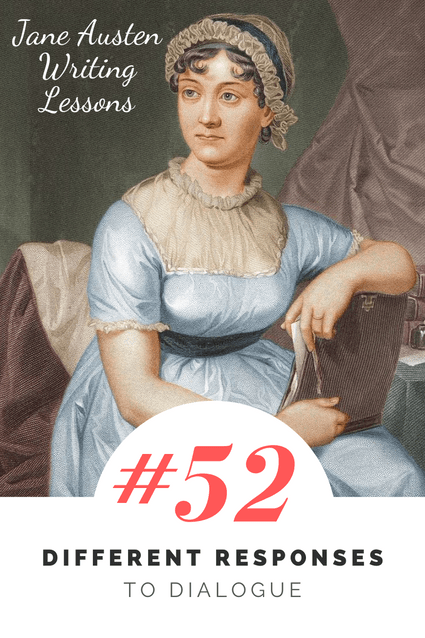


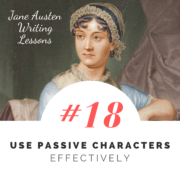
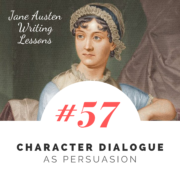
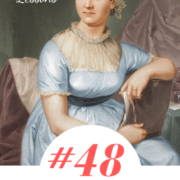

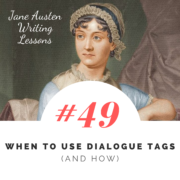
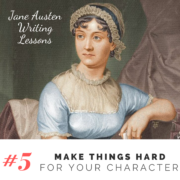


Leave a Reply
Want to join the discussion?Feel free to contribute!